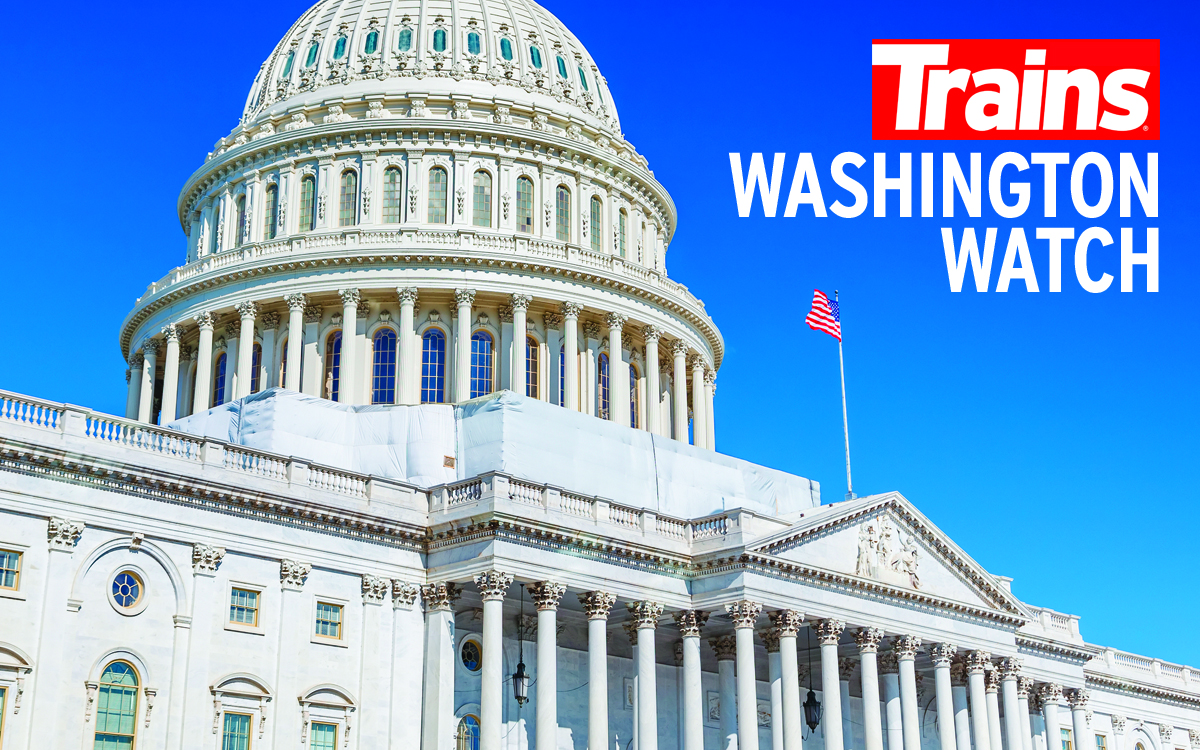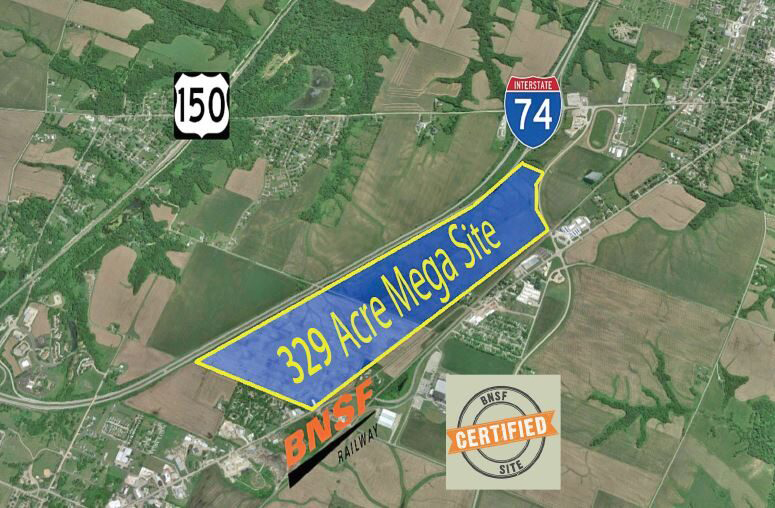WASHINGTON — The Surface Transportation Board has dismissed a complaint from a coalition of rail shippers taking issue with what they characterized as unfair fuel surcharges.
The STB’s decision to deny the petition for reconsideration on Dec. 30 is the latest in a long-brewing conflict over fuel surcharges. Railroads say they are simply trying to recoup their fuel costs, whereas shippers say the Class Is are actually trying to juice the bottom line.
In the early 2000s, shippers began to complain that railroads were charging exorbitant fees related to fuel usage and that in some cases carriers were actually recovering amounts “over and above” their actual increased fuel costs. The STB ruled in 2006 that if a fuel surcharge was used as “a broader revenue enhancement measure, it is mislabeled” and prohibited surcharges created from the percentage of a base shipping rate.
The STB directed “that any fuel surcharge program applied to regulated traffic must be based on attributes of a movement (such as mileage) that directly affect the amount of fuel consumed.”
The STB created a “safe harbor” index based on the Highway Diesel Fuel Index that carriers could use to craft fuel surcharges. The regulator noted that since the index had already subject to “notice and comment scrutiny” that it would not be subject to challenges from shippers. However, that declaration did not stop Cargill Inc. from filing a complaint alleging that BNSF Railway had used the “safe harbor” index to overcharge the company by hundreds of millions of dollars over five years, far exceeding its actual fuel cost increases. The STB dismissed Cargill’s complaint in 2013.
In 2014, the STB issued an advance notice of proposed rulemaking seeking comments on whether the “safe harbor” provision should be modified or removed. The board specifically wanted to know if the issues seen in the Cargill case were unique. The STB received 15 comments and 10 replies, noting that responses were “varied” but ultimately inconclusive. After five years of inaction, and no agreement between the board’s members, the STB decided to close the matter with no further action.
On Sept. 18, 2019, the Western Coal Traffic League, the American Public Power Association, the Edison Electric Institute, the Freight Rail Customer Alliance, and the National Rural Electric Cooperative Association filed a petition for reconsideration of the board’s decision. In its petition, the shippers alleged the board failed to follow past rulings or consider evidence suggesting the railroads were still using the surcharges to turn a profit rather than recoup costs.
On Dec. 30, the STB ruled that the shipper’s petition for reconsideration “rested on various claims of material error.” At the core of the dismissal was that the shippers never challenged the STB’s rationale for discontinuing the proceeding, which was ultimately because it could not come to a unanimous decision, and that the board was well within its discretion to close the docket due to a lack of substantial feedback from stakeholders.
The STB’s decision only impacts rail traffic subject to regulation. However, non-regulated traffic shippers are also speaking out about fuel surcharges. In October, more than two dozen companies, from Campbell’s Soup to Mercedes-Benz USA, filed lawsuits against multiple Class Is alleging the railroads had conspired to charge excessive fuel surcharges to generate profits [See: “More shippers file suits over railroad fuel surcharges,” Trains News Wire, Oct. 3, 2019].















An issue going on 20 years. This is nothing more than a money machine for attorneys.
RICH and JOHN – Hate to rain on your parades. The fact is railroads charge shippers whatever “the traffic will bear” with no price regulation. If they don’t get you the base price they’ll get you on the surcharge. If they don’t get you on the surcharge they’ll get you on the base price.
Long-term contracts (three years, five years) benefit both the customer (the shipper) and the contractor (the railroad) by providing a stable platform to enable both parties to plan ahead for transportation. Long-term contracts work best if there’s a commodity price escalator as commodity prices are the least stable and least predictable portion of the overall cost of transportation.
Aside from diesel fuel, I’ve seen commodity escalators in steel for bridge building and copper in electrical construction. I. e. an electrical contractor may be able to predict his cost of labor and equipment but not the price of copper. Commodity price variation is published by the various trade groups and is right there to see in black and white by both the customer and the contractor.
Whether or not the railroad can hedge against or lock in diesel fuel prices, the term in years of those contracts to purchase fuel may or may not be the same term in years as the railroad’s contract with its shipper to provide transportation..
Every one of these “surcharges” are essentially passed down to the consumer level through increased costs on foods, consumer goods, building materials, etc, this is a baseless “tax” on the overall state of the economy. Hopefully wages have increased over the last decade to compensate the difference, but I doubt it.
Just about any medium or larger size trucking company or railroad using the EIA Highway Diesel average as the basis for their fuel surcharges is overcharging.
The last company I worked for operated a small private trucking operation. The contract carrier who ran the operation for us gave us a direct pass through on actual fuel purchases for our trucks. The contract carrier had negotiated roughly a 35% discount off posted diesel prices with several large national truck stop operators.
Based on the relative size of the contract carrier; I can well imagine railroads with their significantly larger bulk fuel purchasing power, have negotiated discounts of at least 50% off the highway average – perhaps greater.
The “fly in the ointment” for rail shippers is the STB’s “safe harbor”. Essentially the board threw shippers under the train to make it easier for railroads to use a common index.
People should hear the complaints from shippers about trucking company fuel surcharges. There it’s either pay or find another way to move your cargo.
I would ask if the Class 1’s are doing what Southwest and Delta did. They purchased options to hedge against oil price variations, especially sharp increases. Now if Class 1’s are making contract purchases (# of gallons at a set price over a period of time) then the supplier/refiner is probably doing the hedging to cover any shocks that undermine their contracts with the Class 1’s.
On the flip side, LNG is at an all time low on a per BTU basis, FEC and others are using it, so if a Class 1 uses a LNG consist that is cheaper than diesel, do they still surcharge?
And how will Class 1’s reflect a fuel surcharge in the future if they use hybrid engines, like from Watco?
What goes around, comes around…..if shareholders of a company that use a Class 1 to ship think the carrier is inefficient with their fuel, can start making noise at the investor level that their fuel costs are uncompetitive and wasteful.
Auto manufacturers come to mind. I can see a regulation for amount of lbs/miles per BTU spent.
First the railroads don’t pay the highway tax that is added to all vehicle fuel. Additionally, they negotiate fuel prices directly with the refiners/suppliers. I have no idea what they pay but they do pay a percentage of the going diesel rate. They justified fuel surcharges when the price of oil was high and rising. Now it is hard to justify surcharges but it is the job of any business to make as much money as possible. All’s fair in love war and business.
Curt, railroads fuel prices are below the highway average because they don’t even pay retail prices, they purchase fuel wholesale directly from refiners, there is no middle man to jack up the price.